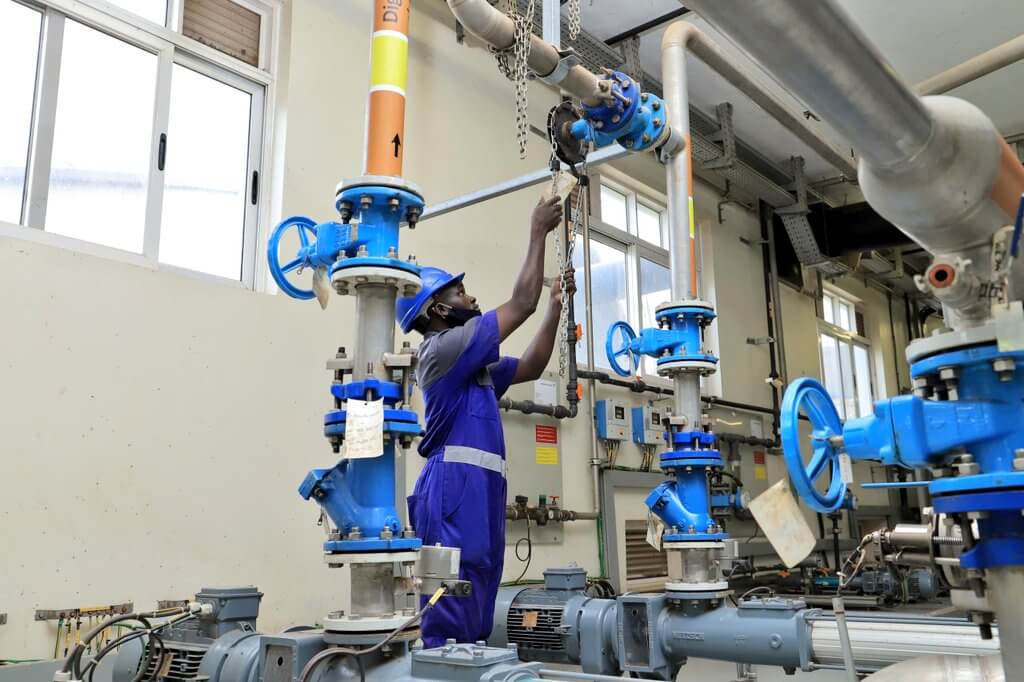The Uganda National water and sewage Corporation (NWSC) has announced a water outage in areas around Kampala and Surrounding in order to allow for repairs at the Ggaba 3 water treatment plant to take place.
The Corporation says that a team of specialist engineers are to undertake emergency works designed to improve system reliability.
NWSC said that the works are estimated to last 7 hours to a day .
“The Management of National water and Sewage Corporation regrets to inform its valued customers and the general public that there will be interruptions in water supply today 22nd May 2024 from 7.00 am to 1.00 pm,” NWSC said in a statement.
Customers were therefore advised to store enough water and use it sparingly as the company works on the Plant.
NWSC announced that the affected Areas include ; Kololo Hill, Kampala Business District, Mulago, Kamwokya, Muyenga, Kansanga, parts of Masaka road, Rubaga, Bulenga, Mityana road, Nansana, Makerere, Matugga, Namirembe, Nakulabye, Lubya, Kasubi, Buziga, Ggaba road, parts of Salaama road, parts of Makindye .
The surrounding areas are parts of Jinja Road, Nakawa, Kyambogo, parts Luzira, Mutungo, Mbuya, Bugolobi, and the surrounding areas.
The repairs at Ggaba 3 Water Treatment Plant are said to be crucial for ensuring the efficient and effective treatment of wastewater at the plant.
The maintenance work may involve preventive maintenance programs, replacement and repair parts, as well as process intensification to enhance the plant’s performance in terms of effluent quality, energy consumption, and operational costs.
Additionally, the repairs may focus on optimizing the treatment process to accommodate sustained growth and urbanization, as well as to improve overall operational efficiency and reliability.
Experts say that it is essential for wastewater treatment plants like Ggaba 3 to undergo regular maintenance and upgrades to meet the increasing demands of growing populations and urban areas.
They say that by investing in maintenance and repairs, these facilities can continue to operate at peak performance, ensuring the safe treatment of wastewater and the protection of public health and the environment.
